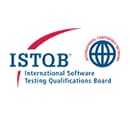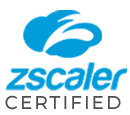Google Professional-Cloud-Network-Engineer Practice Test Questions Answers
Exam Code: Professional-Cloud-Network-Engineer
(Updated 233 Q&As with Explanation)
Exam Name: Google Cloud Certified - Professional Cloud Network Engineer
Last Update: 19-Dec-2025
Demo:
Download Demo
Questions Include:
Professional-Cloud-Network-Engineer Overview
Google Professional-Cloud-Network-Engineer Exam Overview
| Category | Details |
|---|---|
| Certification Name | Google Professional Cloud Network Engineer – Google Cloud Platform |
| Target Audience | Network engineers responsible for the design, implementation, and management of Google Cloud networking solutions and services. |
| Purpose | Validates the skills required to design, implement, and manage Google Cloud’s network architecture, including hybrid and multi-cloud environments. |
| Exam Duration | 2 hours |
| Number of Questions | 50 multiple-choice and multiple-select questions |
| Passing Score | 70% (35 correct answers out of 50) |
| Exam Format | Multiple-choice and multiple-select questions |
| Exam Delivery | Online (via Google Cloud’s exam portal or Pearson VUE) |
| Exam Cost | $200 (USD) |
| Languages Available | English |
| Prerequisites | Recommended: Experience in networking, cloud architecture, and familiarity with Google Cloud networking tools and services. |
| Key Topics Covered | 1. Network Design and Planning 2. Implementing and Managing Network Services 3. Network Security and Monitoring 4. Hybrid and Multi-Cloud Networks 5. Troubleshooting Networks |
| Preparation Resources | 1. Google Cloud Professional Cloud Network Engineer Learning Path 2. Google Cloud Networking Documentation 3. Practice exams 4. Hands-on experience with Google Cloud networking tools |
| Validity Period | 2 years (requires recertification after expiration) |
| Retake Policy | Candidates can retake the exam after 14 days if they do not pass. |
Other Google Exams
- Security-Operations-Engineer Exams
- Generative-AI-Leader Exams
- Chrome-Enterprise-Administrator Exams
- Google-Ads-Video Exams
- ChromeOS-Administrator Exams
- Professional-Cloud-Database-Engineer Exams
- Google-Workspace-Administrator Exams
- Looker-Business-Analyst Exams
- LookML-Developer Exams
- Cloud-Digital-Leader Exams
- Professional-Machine-Learning-Engineer Exams
- Associate-Android-Developer Exams
Google Related Exams
Reliable Solution To Pass Professional-Cloud-Network-Engineer Google Cloud Platform Certification Test
Our easy to learn Professional-Cloud-Network-Engineer Google Cloud Certified - Professional Cloud Network Engineer questions and answers will prove the best help for every candidate of Google Professional-Cloud-Network-Engineer exam and will award a 100% guaranteed success!
Why Professional-Cloud-Network-Engineer Candidates Put Solution2Pass First?
Solution2Pass is ranked amongst the top Professional-Cloud-Network-Engineer study material providers for almost all popular Google Cloud Platform certification tests. Our prime concern is our clients’ satisfaction and our growing clientele is the best evidence on our commitment. You never feel frustrated preparing with Solution2Pass’s Google Cloud Certified - Professional Cloud Network Engineer guide and Professional-Cloud-Network-Engineer dumps. Choose what best fits with needs. We assure you of an exceptional Professional-Cloud-Network-Engineer Google Cloud Certified - Professional Cloud Network Engineer study experience that you ever desired.
A Guaranteed Google Professional-Cloud-Network-Engineer Practice Test Exam PDF
Keeping in view the time constraints of the IT professionals, our experts have devised a set of immensely useful Google Professional-Cloud-Network-Engineer braindumps that are packed with the vitally important information. These Google Professional-Cloud-Network-Engineer dumps are formatted in easy Professional-Cloud-Network-Engineer questions and answers in simple English so that all candidates are equally benefited with them. They won’t take much time to grasp all the Google Professional-Cloud-Network-Engineer questions and you will learn all the important portions of the Professional-Cloud-Network-Engineer Google Cloud Certified - Professional Cloud Network Engineer syllabus.
Most Reliable Google Professional-Cloud-Network-Engineer Passing Test Questions Answers
A free content may be an attraction for most of you but usually such offers are just to attract people to clicking pages instead of getting something worthwhile. You need not surfing for online courses free or otherwise to equip yourself to pass Professional-Cloud-Network-Engineer exam and waste your time and money. We offer you the most reliable Google Professional-Cloud-Network-Engineer content in an affordable price with 100% Google Professional-Cloud-Network-Engineer passing guarantee. You can take back your money if our product does not help you in gaining an outstanding Professional-Cloud-Network-Engineer Google Cloud Certified - Professional Cloud Network Engineer exam success. Moreover, the registered clients can enjoy special discount code for buying our products.
Google Professional-Cloud-Network-Engineer Exam Topics Breakdown
| Domain | Weight (%) | Topics Covered |
|---|---|---|
| 1. Network Design and Planning | 20% | - Designing network architecture for Google Cloud - Choosing appropriate networking components - Implementing VPCs and subnets |
| 2. Implementing and Managing Network Services | 30% | - Configuring Cloud Load Balancing, Cloud DNS, and Cloud Interconnect - Setting up VPNs, private connections, and traffic management - Managing networking services and IP address assignments |
| 3. Network Security and Monitoring | 20% | - Configuring firewalls, identity and access management (IAM) for networking - Securing cloud networks using encryption - Monitoring network performance using Google Cloud tools |
| 4. Hybrid and Multi-Cloud Networks | 15% | - Designing hybrid cloud network architectures - Interconnecting Google Cloud with on-premises and other cloud networks |
| 5. Troubleshooting Networks | 15% | - Diagnosing and troubleshooting network connectivity issues - Identifying and resolving common network-related problems in Google Cloud environments |
Google Professional-Cloud-Network-Engineer Google Cloud Platform Practice Exam Questions and Answers
For getting a command on the real Google Professional-Cloud-Network-Engineer exam format, you can try our Professional-Cloud-Network-Engineer exam testing engine and solve as many Professional-Cloud-Network-Engineer practice questions and answers as you can. These Google Professional-Cloud-Network-Engineer practice exams will enhance your examination ability and will impart you confidence to answer all queries in the Google Professional-Cloud-Network-Engineer Google Cloud Certified - Professional Cloud Network Engineer actual test. They are also helpful in revising your learning and consolidate it as well. Our Google Cloud Certified - Professional Cloud Network Engineer tests are more useful than the VCE files offered by various vendors. The reason is that most of such files are difficult to understand by the non-native candidates. Secondly, they are far more expensive than the content offered by us. Read the reviews of our worthy clients and know how wonderful our Google Cloud Certified - Professional Cloud Network Engineer dumps, Professional-Cloud-Network-Engineer study guide and Professional-Cloud-Network-Engineer Google Cloud Certified - Professional Cloud Network Engineer practice exams proved helpful for them in passing Professional-Cloud-Network-Engineer exam.














